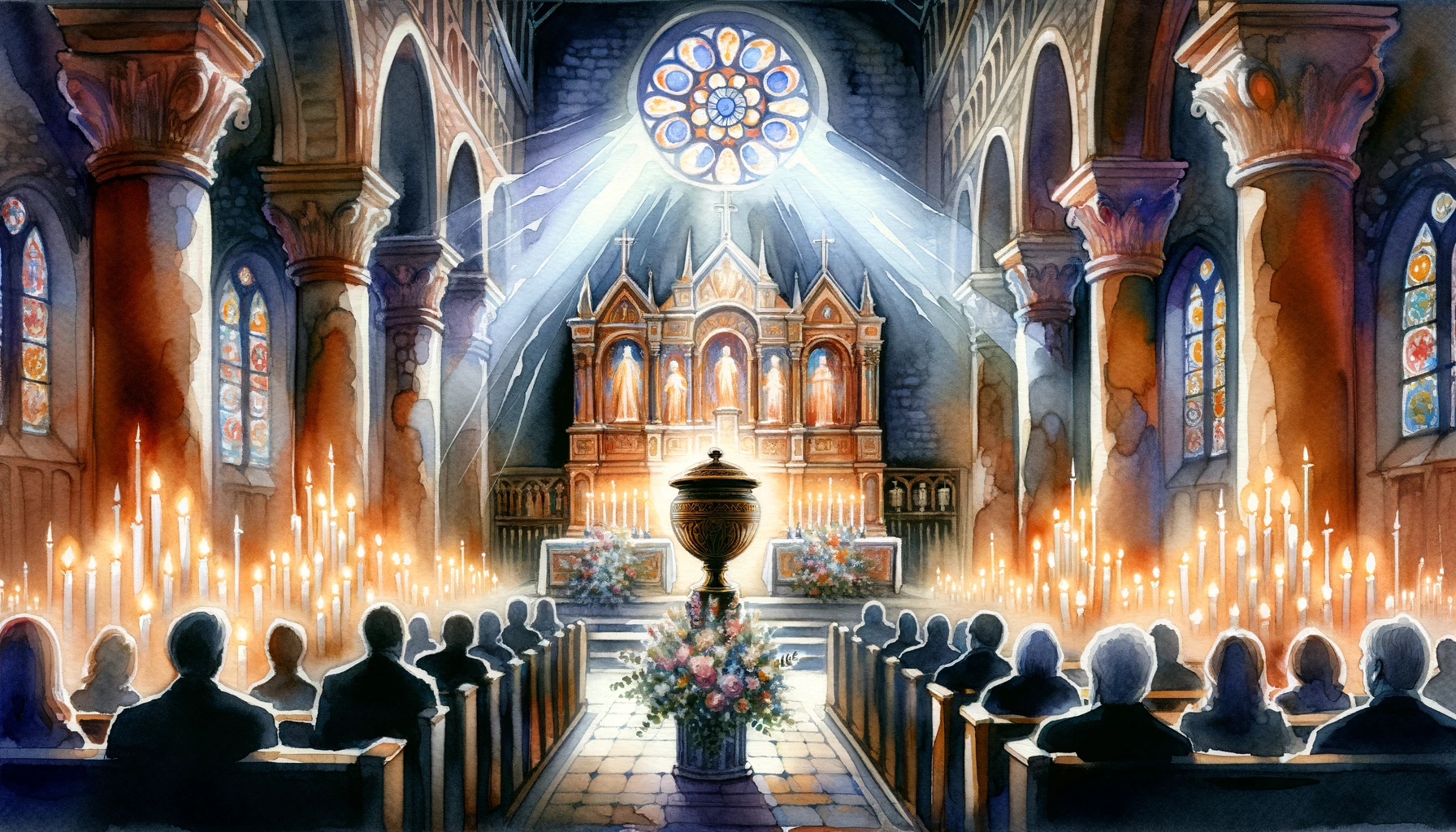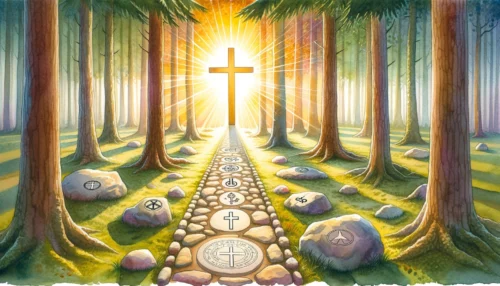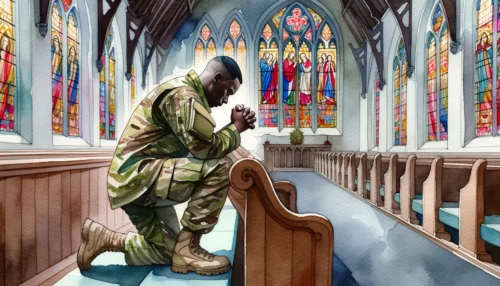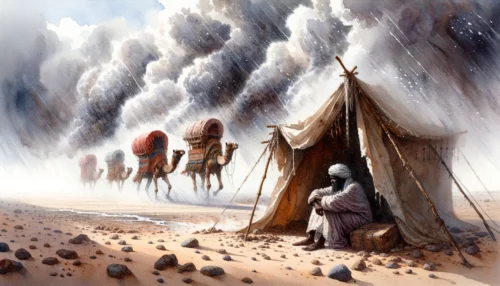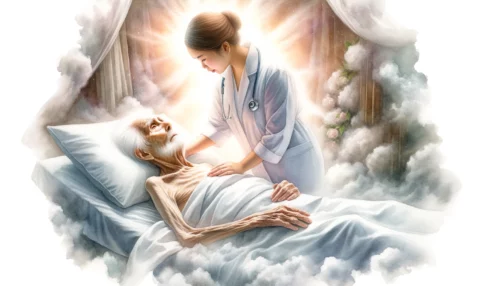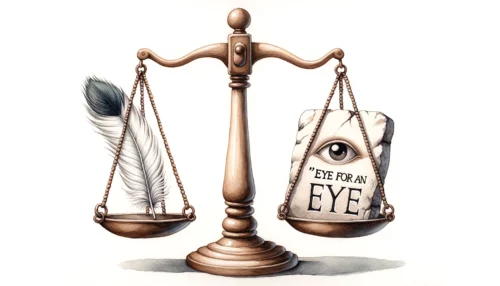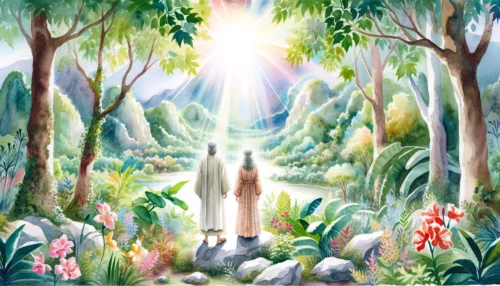We often find ourselves faced with decisions that require us to navigate the delicate balance between contemporary practices and the teachings of Scripture. The topic of cremation, while not explicitly discussed in the Bible, calls for an exploration of related biblical principles. As we traverse the intricacies of this subject, it is important to approach it with the grace and compassion that underscores the love of Christ.
The Biblical Perspective on Death and the Human Body
When we approach the topic of cremation, it’s relevant to first reflect on what the Bible says about death and the human body. According to biblical teachings, human beings are created with dignity and value, made in the image and likeness of God (Genesis 1:27). This fundamental belief shapes Christian understanding of human life and its sanctity.
Death, as portrayed in the Bible, is not the end but a transition. There’s a consistent teaching throughout the Scriptures that death ushers the soul into an eternal realm (2 Corinthians 5:1-8). The body, having served its earthly purpose, returns to the dust from which it was formed (Genesis 3:19). This does not denote disrespect or dishonour, rather, it speaks to the cycle of earthly life.
The Bible also carries forward the hope of a future resurrection. This belief, central to Christianity, asserts that bodies laid to rest will one day be raised imperishable (1 Corinthians 15:42-44). It is in this context that Christians have traditionally shown great respect for the human body, even after death.
Historically, Christian practice has leaned towards burial, often interpreted as an embodiment of this hope. The burial of Jesus Himself (John 19:40-42) has been a powerful influence on this tradition. His body was cared for, wrapped in linen, and placed in a tomb. This practice was carried forward in the early Church and for centuries thereafter.
As for cremation, the Bible does not directly address it. Instances of burning bodies are mentioned in the Bible, but often associated with warfare or punishment, not normative after-death care (1 Samuel 31:12). Therefore, it might be concluded that the practice was not common or perhaps even seen unfavorably during biblical times.
In the Christian understanding, the human body, made in the image of God, holds immense dignity and value. Death is perceived as a transition, not the end, and the hope of a future resurrection is deeply ingrained. This belief has historically influenced the preference for burial as a sign of respect for the deceased and an affirmation of resurrection hope. The Bible does not provide direct guidance on cremation, and instances where bodies were burnt often occurred under special circumstances, making it difficult to derive a clear biblical stance on this practice.
Historical Christian Practices Regarding Burial and Cremation
As we shift our focus from scriptural teachings to historical practices, we see that Christian tradition has predominantly preferred burial over cremation. The roots of this preference can be traced back to early Christianity and the example of Jesus’ burial (John 19:40-42). Christians saw burial as an expression of respect for the deceased and a reaffirmation of the belief in resurrection.
During the Roman Empire’s rule, cremation was a common practice. However, early Christians preferred burial, perhaps to differentiate themselves from the pagan society around them. This distinction extended even to the catacombs, where early Christian burials often took place.
Through the Middle Ages and even into the early modern era, Christian burial practices remained consistent. The body would be washed, shrouded, and laid to rest, often with a religious service to honor the deceased and provide comfort for the grieving. These practices underscored the sacredness of the human body and the Christian hope in life after death.
The perspective on cremation began to change in the late 19th century, when it was reintroduced in the Western world as a sanitary and space-efficient alternative to burial. For a time, there was resistance from many Christian groups due to the historical preference for burial and potential theological implications.
It was not until the mid-20th century that many Christian denominations, including the Catholic Church in 1963, began to allow cremation while maintaining a preference for burial. The shift reflected a recognition that the method of body disposition does not negate the belief in resurrection or the value accorded to the human body.
Christian tradition has historically favored burial, a preference rooted in the biblical account of Jesus’ burial and the early Church’s practices. This trend held through the Middle Ages and into the early modern era, reflecting a deep respect for the human body and the belief in resurrection. However, in the late 19th and 20th centuries, attitudes towards cremation began to change, and many Christian denominations now permit it. The method of body disposition has come to be seen as not detracting from the fundamental Christian doctrines of resurrection and the inherent value of the human body.
Analyzing Cremation in Light of Christian Beliefs and Values
When it comes to the practice of cremation, many may wonder if it’s compatible with Christian beliefs and values. The Bible doesn’t offer a direct command or prohibition regarding cremation, which leaves room for individual interpretation and decision-making.
One critical point to consider is that both cremation and burial ultimately result in the same physical outcome – the return of the body to the elements from which it was formed (Genesis 3:19). Cremation might be a quicker process, but the end result mirrors the natural process that occurs in the earth over time.
A fundamental Christian belief is the resurrection of the body (1 Corinthians 15:42-44). This doesn’t imply the resuscitation of the earthly remains but speaks of a transformed, imperishable body. Therefore, the state of one’s earthly remains, whether buried or cremated, does not affect the promise of resurrection.
The central theme in choosing between cremation or burial should be respect and dignity for the deceased, which aligns with the Christian belief of being made in God’s image (Genesis 1:27). Care should be taken to ensure that the chosen method of disposition honors the deceased and is not chosen for improper reasons.
Some may worry that choosing cremation might disregard the traditional Christian preference for burial. But with many Christian denominations now allowing cremation, it is becoming more accepted within the faith community. The choice ultimately lies with the individual or the family, keeping in mind their understanding of biblical principles, historical Christian practices, and personal convictions.
In light of Christian beliefs and values, cremation isn’t explicitly prohibited in the Bible. Both cremation and burial lead to the body’s return to the elements, in line with Genesis 3:19. The promise of resurrection, a core Christian belief, is independent of the state of one’s earthly remains. The chosen method of disposition should respect the deceased and align with the belief in human dignity. Today, many Christian denominations allow cremation, and the choice is dependent on individual understanding and conviction.
Seeking Guidance in Faith
The question of cremation presents us with an opportunity to reflect on the interplay of Scripture, tradition, and personal conviction. This inquiry has guided us to examine the Christian understanding of death, the historical burial practices, and the compatibility of cremation with Christian beliefs. We affirm that Christian faith transcends the method of body disposition and lies in the transformative power of resurrection and the inherent dignity of the human form.
For your personal reflection:
- How does your understanding of Christian teachings on death and resurrection influence your views on cremation?
- How does the historical preference for burial in Christian tradition impact your perspective?
- In what ways does your personal conviction align or conflict with the current stance of your faith community on cremation?
Let us remain steadfast in our faith, grounded in the love of God, and comforted by the hope of resurrection. May we extend this hope and comfort to others, making our decisions with the wisdom and grace that emanates from our shared belief in Christ.




